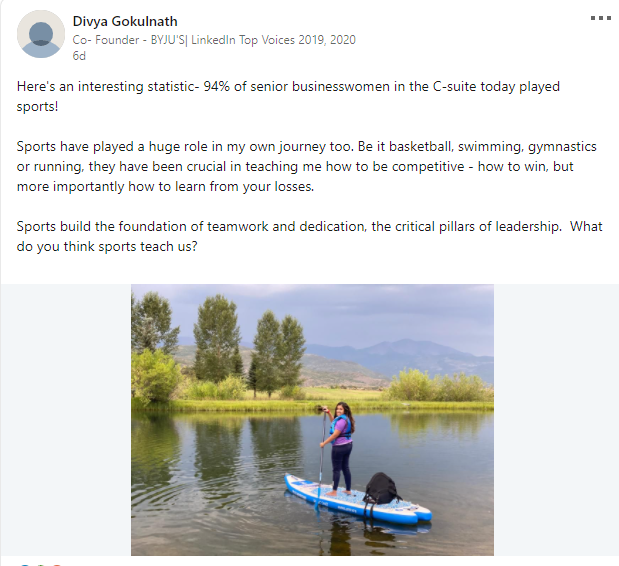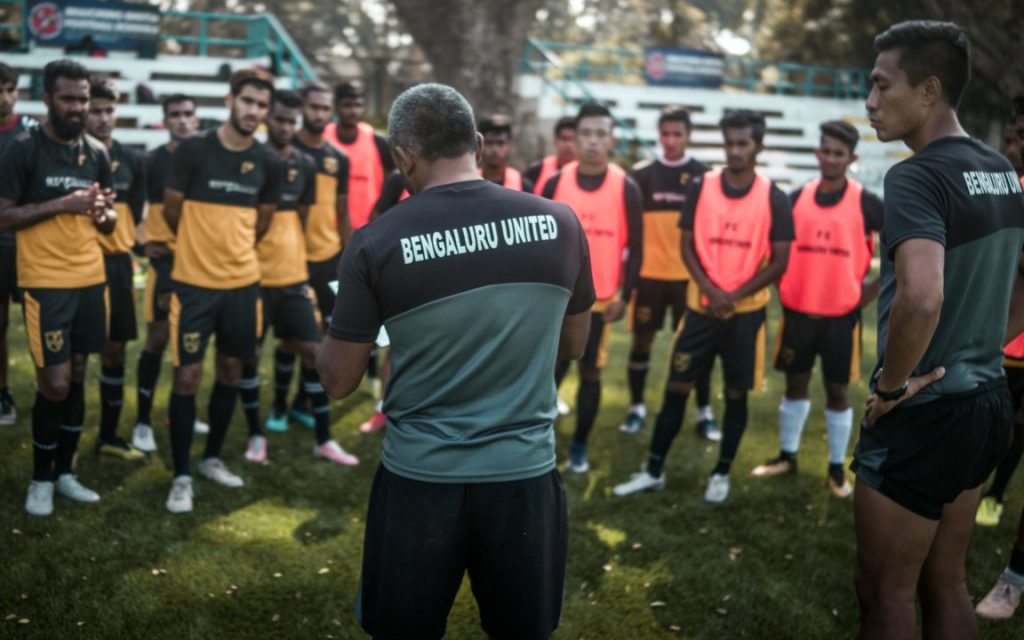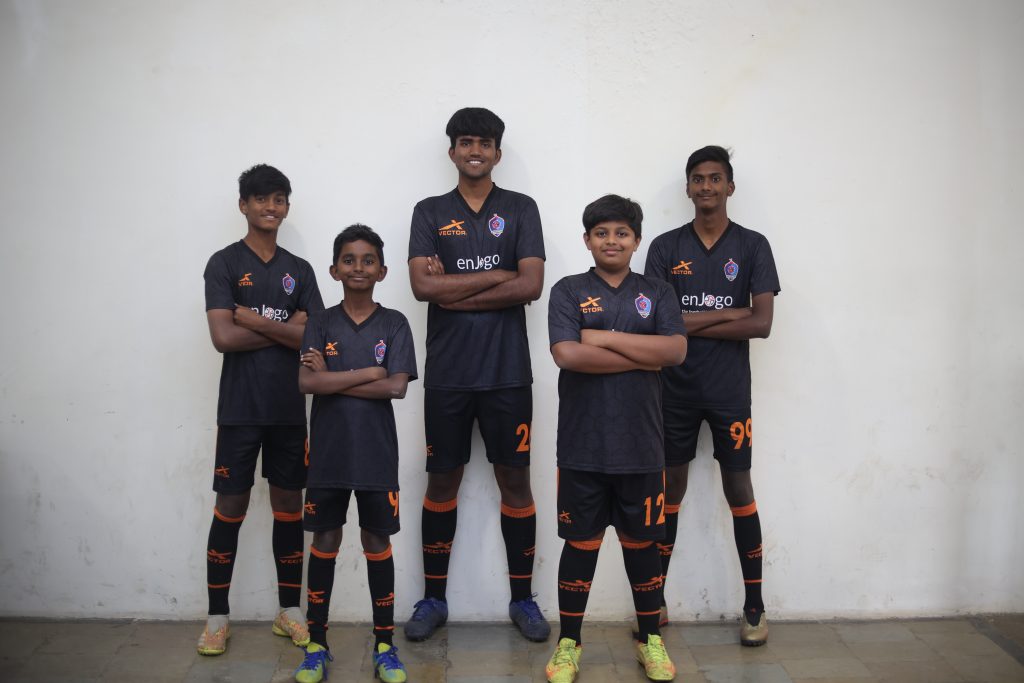Did you know?
It’s been suggested that up to 95% of Fortune 500 CEOs played college sports, as well as 90% of high-level executives.
Last week, Divya Gokulnath, the co-founder of Byju’s – India’s ed-tech giant, spoke about the benefits of sports. Back in the day, Divya played multiple sports as a child which helped her build a robust personality.

Playing – a primal need
Children of all species, not just humans, are wired to play. They play to grow their strength. Physical, mental, and social. And thus learn how to survive. It is an evolutionary need.
Playing sports is a fundamental right of every human being, says UNESCO’s International Charter for Physical Education and Sports.
Finding the right balance
In many cases, teenagers are at a crossroads to decide what they want to become in life. More so in cases of athletes, who put in a lot of effort in their early years to shape their sporting career, often allowing education to take a backseat.
In a conversation with Richard Hood, Head Coach of FC Bengaluru United, he emphasized the necessity of balancing sports and academics.

“As a teenager, the decision is mostly pursuing football or nothing. But if you look at international superstars like Chiellini or Chiesa, they pursued academics alongside football. Despite Chiesa’s dad being an international player, he completed a graduate degree and learned English if football didn’t work out. It’s great to believe in your abilities but don’t put all eggs in one basket. It puts unnecessary pressure on an individual” said Richard Hood, on chalking plans for a teenage football aspirant.
Creating options and enjoying the process
But how do we create a conducive culture where aspirants can have equal opportunities to pursue academics and sports?
Is it possible to lessen the burden on young minds and let them enjoy the process?
Kishore Taid, CEO of enJogo and BBFS, believes so.
“Kids who didn’t make it to our academy team at age 15 represented India at 21. The athletic maturity, in my opinion, comes in the 20s. It is unfair if our children are forced to make a career choice in their teens,” said he.
Historically, India has been a sports-loving nation, where only 2% of its citizens actively pursue sports. On the other hand, if we compare the numbers with our neighbours – 41% of the Chinese population actively plays sports.
At BBFS, we started the residential academy project to provide the right platform for children to develop holistically. Student-athletes at our residential academies undergo a learning curve which enables them to excel in academics while preparing for top-tier football. Each child undergoes a customized curriculum developed by seasoned academic and sporting professionals that is not result-oriented and is focused on peer-based learning. The state-of-the-art facilities equipped with all-round medical facilities further add to the safety and well-being.

As we discussed in one of our previous articles, the need of the hour is creating an ideal environment for student-athletes to learn while they play. A vibrant culture is difficult to infuse in an ecosystem which has traditionally bent solely on winning without celebrating the journey.
Today’s stalwarts were active sportspeople back in the day; we believe that the right environment can prepare even better leaders of tomorrow. At BBFS, our endeavor has always been to create a fit, resilient and dynamic generation using the platform of elite sports training.
Read more about BBFS Residential Academy
Download enJogo, India’s first football learning app on Android and iOS
Read the last five editions from The Dugout:
#27 From India to Europe: a young footballer’s dream journey
#26 Little Manbha’s Big Dreams
#25 Why should boys have all the fun?


